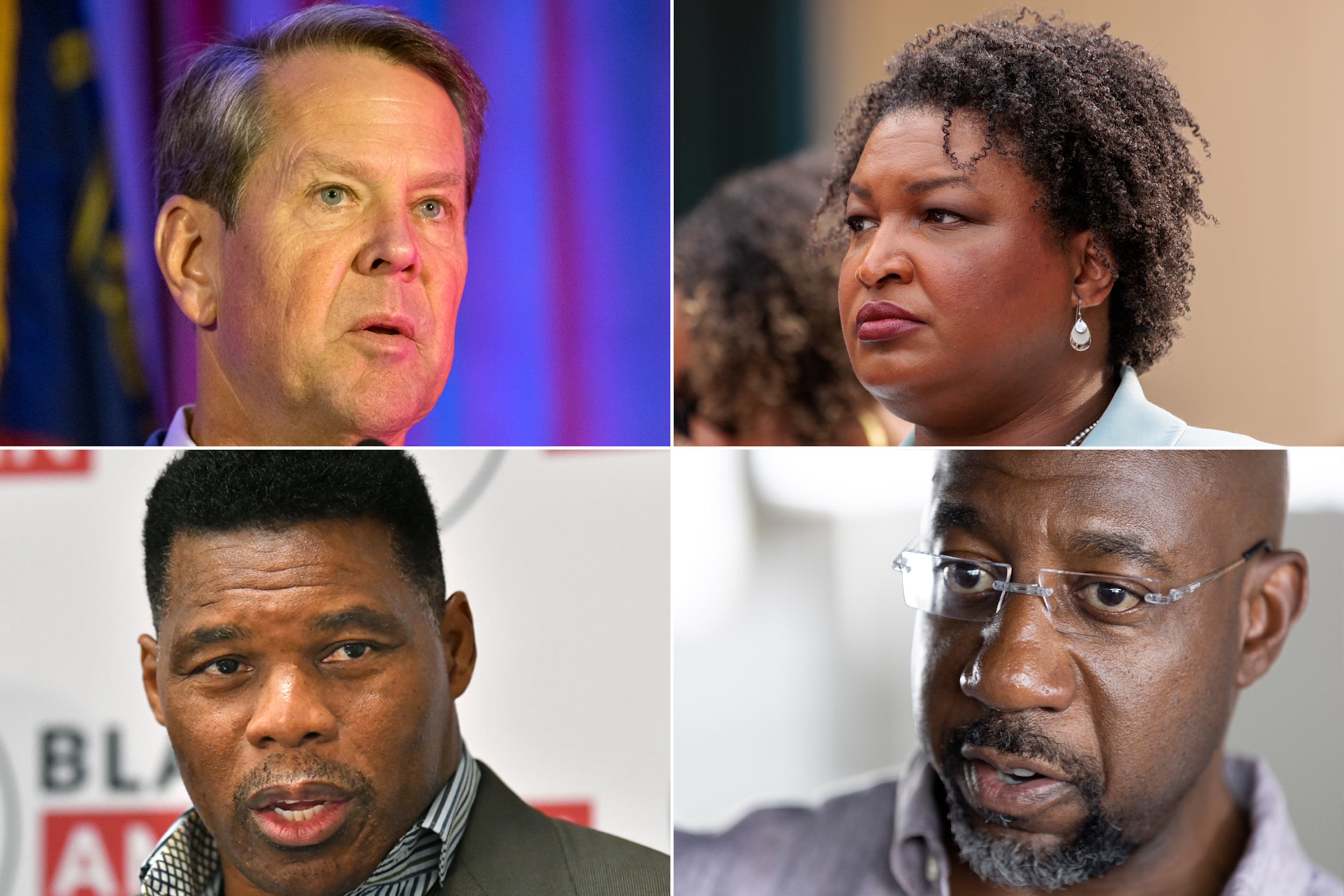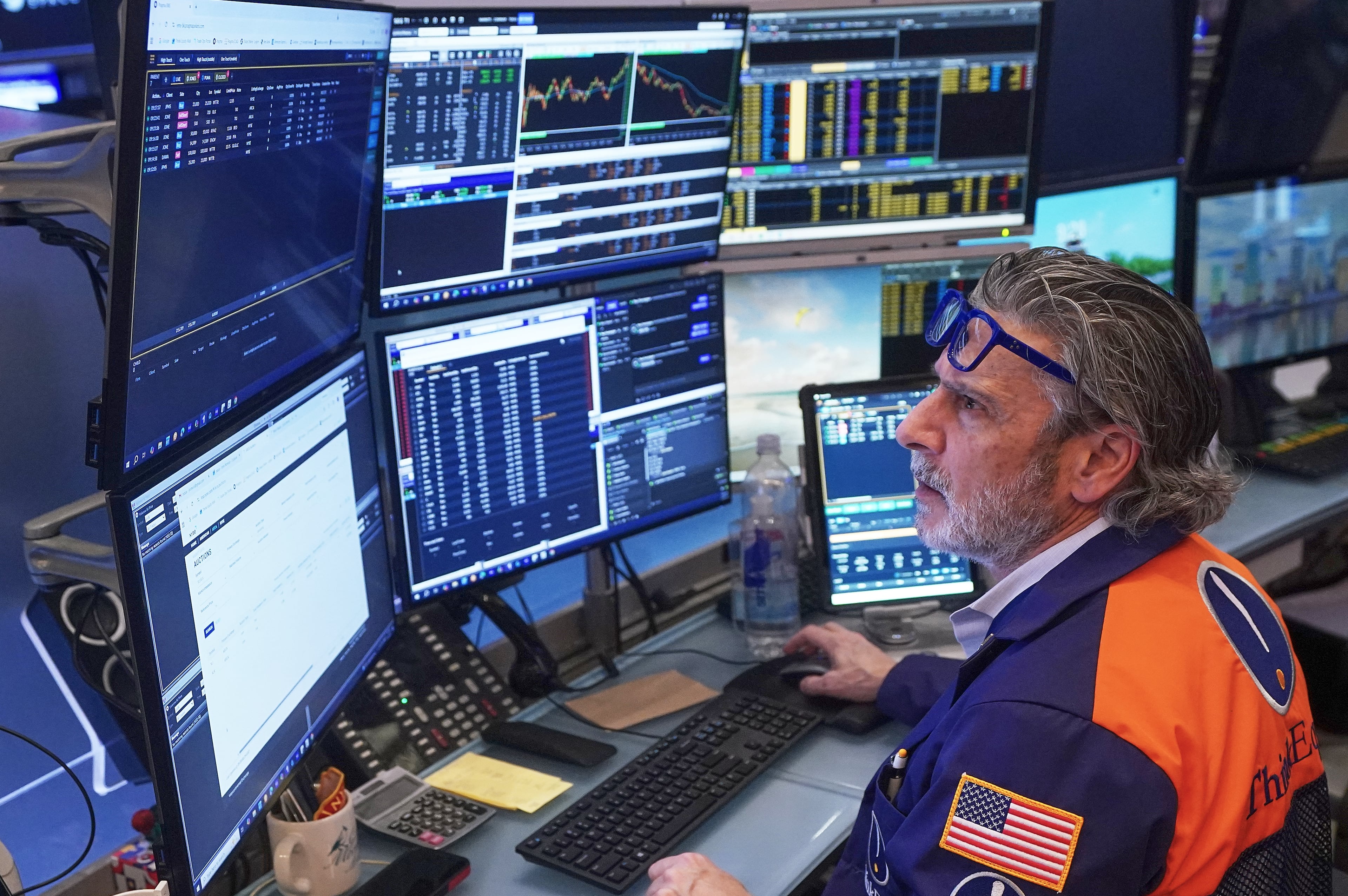Climate change remains partisan issue in Georgia elections

The next governor of Georgia and the winner of the state’s high-profile U.S. Senate race will face consequential decisions in the years to come over climate change.
Though climate change does not rank among the top issues in this year’s races, polling of Georgia voters gives a nuanced view. Half of Georgia voters in an Atlanta Journal-Constitution poll last month said that the nation needs to do more to address it.
A majority also supports the Democrats’ sweeping federal climate and health care law, which includes $370 billion in climate spending. The law uses a mix of tax breaks and other incentives to promote electric vehicles, solar energy and battery manufacturing — industries Georgia has invested in heavily. A large chunk is earmarked to reduce air pollution and boost climate resilience in low-income communities.
Republican Gov. Brian Kemp seldom utters the words “climate change,” though he’s recruited and embraced electric-vehicle factories, a sprawling solar panel plant and other green technologies as the jobs of the future. His administration, meanwhile, has established long-term plans to help coastal communities prepare for rising sea levels, stopping short of more ambitious efforts seen in neighboring states.
Kemp has condemned the Democrats’ climate bill as overspending, saying he doesn’t believe “government red tape is the answer” to solving climate change.
Stacey Abrams, his Democratic opponent, has taken a more proactive stance. Abrams has spoken bluntly about the threat of rising temperatures and promised to take a hands-on approach as governor with “aggressive planning and targeted investment.” Her platform calls for the appointment of a chief resilience officer in the governor’s office to coordinate policy across agencies, and government financing for infrastructure upgrades.
Abrams has also proposed new response plans to prepare coastal areas for extreme weather. She’s embraced the new climate bill for its green energy and jobs initiatives and slammed Kemp for being “absolutely silent” on plans to curb warmer temperatures.

Democratic U.S. Sen. Raphael Warnock has made his support of the federal climate bill a centerpiece of his campaign in recent weeks. He has also emphasized the outsized impact of climate change and pollution on vulnerable communities. Specifically, he has alluded to contaminated water and air in Black and brown communities — such as the water crises in Jackson, Mississippi and Flint, Michigan — as well as the high energy burden placed on low-income families that pay a larger portion of their income on utilities.
Warnock’s rival, Republican Herschel Walker, has been dismissive of government spending on climate mitigation. In July, he gave mystifying remarks about bad air from China. A month later at a campaign event, Walker criticized the Democrats’ climate bill, saying “a lot of the money goes to trees.”
“Don’t we have enough trees around here?” Walker said.
Cost of living, threats to democracy and jobs ranked as voters’ top issues in the recent AJC poll. Climate change ranked seventh overall, higher than abortion and COVID-19 and just behind crime.
But climate change rated as the No. 3 issue for lower income voters and fourth to voters ages 18-29, according to the poll of likely voters conducted by the University of Georgia’s School of Policy and International Affairs.
More than three-quarters of liberal and moderate voters in the AJC poll said there was more that the U.S. should do to combat a changing climate.
Joseph Mastrario, 62, a political independent in Houston County who responded to the AJC’s poll, said he put climate change in his top three issues, but he still considers inflation his primary concern.
“Unfortunately, when people can’t afford food and can’t afford to live ... climate change has an uphill battle,” he said.
Even those working to turn out the climate vote say they recognize many people are more concerned about pocketbook issues.
“When people are saying, ‘I’m concerned about high power bills,’ there’s a whole discussion to be had about power and the future of power, which is very much a climate conversation,” said Brionte McCorkle, executive director of Georgia Conservation Voters.
Some national polling has shown that younger conservatives are more concerned about climate change than their older counterparts.
But Andrew Abbott of Georgia Young Republicans said he sees more of an urban-rural divide than a generational one when it comes to how young conservatives view climate change. In addition to expressing concerns about overregulating businesses, conservatives bristle at what he characterized as the self-righteousness of the left on environmental issues.
“I really think it’s a cultural thing,” he said. “If you identified an idea with a certain group of people that maybe you don’t like, then you’re much less likely to support that idea.”
Not all voters fit neatly into one of two political categories, however.
While many evangelical Christians are pulled to the right by the abortion issue, a growing “creation care” movement emphasizes environmental stewardship based on the Bible’s teachings.

Creation care asks Christians to take a broader view of what it means to be “pro-life,” said Marqus Cole, the community outreach coordinator for Grace Snellville. That means recognizing how pollution and climate change are impacting the poor and vulnerable, he said.
“If we’re going to be people of faith that talk about being for life, then we really do have to be for all of life,” said Cole, who is also the director of church and community engagement for the nonpartisan Evangelical Environmental Network.
Cole gathered a few Grace Snellville worshippers on a recent weeknight to introduce them to the idea of creation care over snacks and coffee.
“Meet me in Isaiah 35,” he told them.
The passage describes the “joy of the redeemed” as the return of life to barren earth:
The desert and the parched land will be glad;
the wilderness will rejoice and blossom.
Like the crocus, it will burst into bloom;
it will rejoice greatly and shout for joy.
“To me, it shows that God cares about creation and he redeems it,” said Diane Flemming, 68, of Loganville.
A former U.S. Fish and Wildlife Service biologist, Flemming said faith-based community efforts might help depoliticize environmental issues over the long term.
Cole said he sees inroads with his congregation when it comes to increasing energy efficiency and reducing waste from large gatherings.
“There’s a lot of low-hanging fruit, even if it’s never out-front political,” Cole said.
This coverage is supported by a partnership with 1Earth Fund, the Kendeda Fund and Journalism Funding Partners. You can learn more and support our climate reporting by donating at ajc.com/donate/climate/


